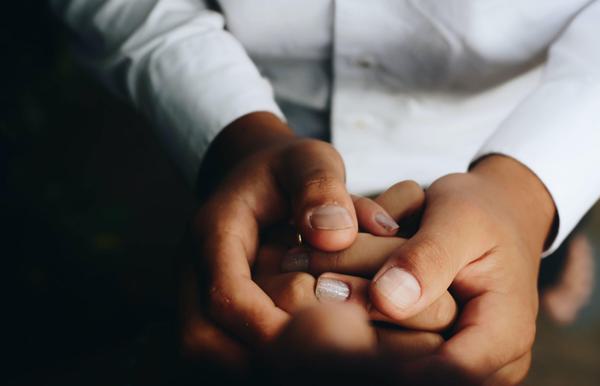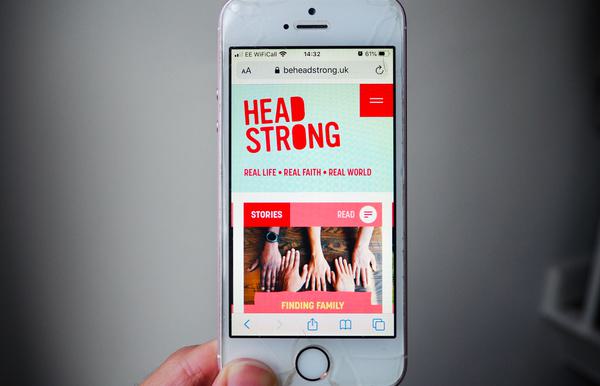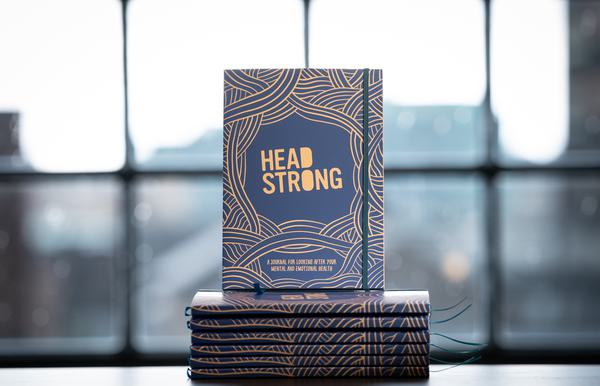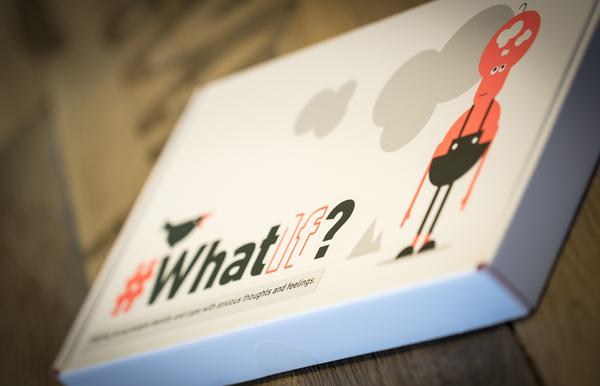In the wake of the Queen's passing, how can you help young people as they emotionally process death, loss, and change in life? Headstrong’s Laura and Jenny give their advice.
As the country mourns and begins to process the events of the last weeks, no doubt you will find yourself navigating conversations with young people that will range hugely in reaction to what has happened. So how do we respond as youth leaders to the death of the Queen with a group of young people so varied in their thoughts and responses?
Ultimately, how do we allow space and opportunity to help young people process everything right now?
Perhaps a good place to start is by looking at the subject of change, we’ll then dig a little deeper into understanding more about grief and some practical things we can put into place for our young people.
Collective loss
The death of the Queen is a collective loss that brings about a great deal of change. Even if young people do not feel an emotional reaction to the events of the last week, it is affecting the landscape of the country where they live. It is bringing about change which is important to process.
There has been a very public outpouring of grief this past week in the wake of the death of the Queen, and this may feel like a painful contrast to more personal losses that young people have faced. Grief is often very lonely, bringing silent but significant changes to day-to-day things, like our routines, our security, and our attachments to people and places. For those young people we know who have suffered loss, this period of public mourning may feel particularly difficult to make sense of. It’s also possible that for some it will create a space in which to acknowledge more openly their own grief and sadness. If you work with young people who have suffered their own losses this is a time to be particularly attuned to how they are doing and what it is bringing up for them.
Off the bat, it’s fair to say that aside from the emotional challenges grief can throw our way, the whole concept of change is not something many of us find particularly easily to navigate. And death is of course the ultimate game changer. Unlike the national outpouring of grief that we have seen this week in the wake of the death of our Queen, the personal losses we face around death are very often much quieter, bringing silent but significant changes to the day-to-day things, like our routines, our security, and our attachments to people and places.
Processing change
Let’s just start by thinking a bit more about change.
At the start of a new academic year, young people across the country are still only days into stepping into what is always a major period of change and transition for them – changes that often rock their friendships, schedules, and secure attachments to places such as the school they’ve been part of for so long, or teachers that have been such an important part of their learning and time at school.
And even for those of us who haven’t started new schools or classes, change seems all around us right now doesn’t it? From the change in government leadership (which already feels like a month ago!), to the change in season and the move away from summer into darker, damper and much shorter autumn days.
Change in whatever form it comes can shake our roots and that’s not an enjoyable feeling for many of us, leaving us often feeling unsettled, confused and feeling a bit wobbly emotionally. But now on top of all the change mentioned above, we have experienced the loss this last week of perhaps the most high-profile figure in British life. That results in a huge amount of cultural and everyday changes also – from a change in monarch, through to changes around what our money looks like, even down to the royal insignia on our Marmite jars and post boxes.
So, what about grief?
Grief is an often misunderstood or at least undervalued emotional process that we all experience at certain points in our life. Although painful, it allows us time and space to process, properly enabling us to heal and carry on with our lives. Not allowing ourselves to feel these emotions can run the risk of us harbouring unresolved pain, needless guilt or sadness that can drain us mentally and resurface later in life as unprocessed trauma having a huge impact on our physical health also.
The definition of loss encompasses a myriad of situations – it’s not an experience that only follows the death of someone you love or knew. It extends to the loss of many things we hold dear, from friendships and relationships through to animals, places, and connections we make as we journey through life. We can feel as shaken by the loss of a childhood pet as we can from the death of someone close to us, and for many young people that sort of grief is often the very first experience of this emotion in their lives.
Grief becomes more complex because no matter what loss we grieve as individuals, we don’t feel things the same way or even work through the understood ‘stages of grief’ (disbelief, anger, depression, bartering and acceptance) in any set order. Nonetheless, knowing what these stages are can mean that we can recognise and validate what young people are going through.
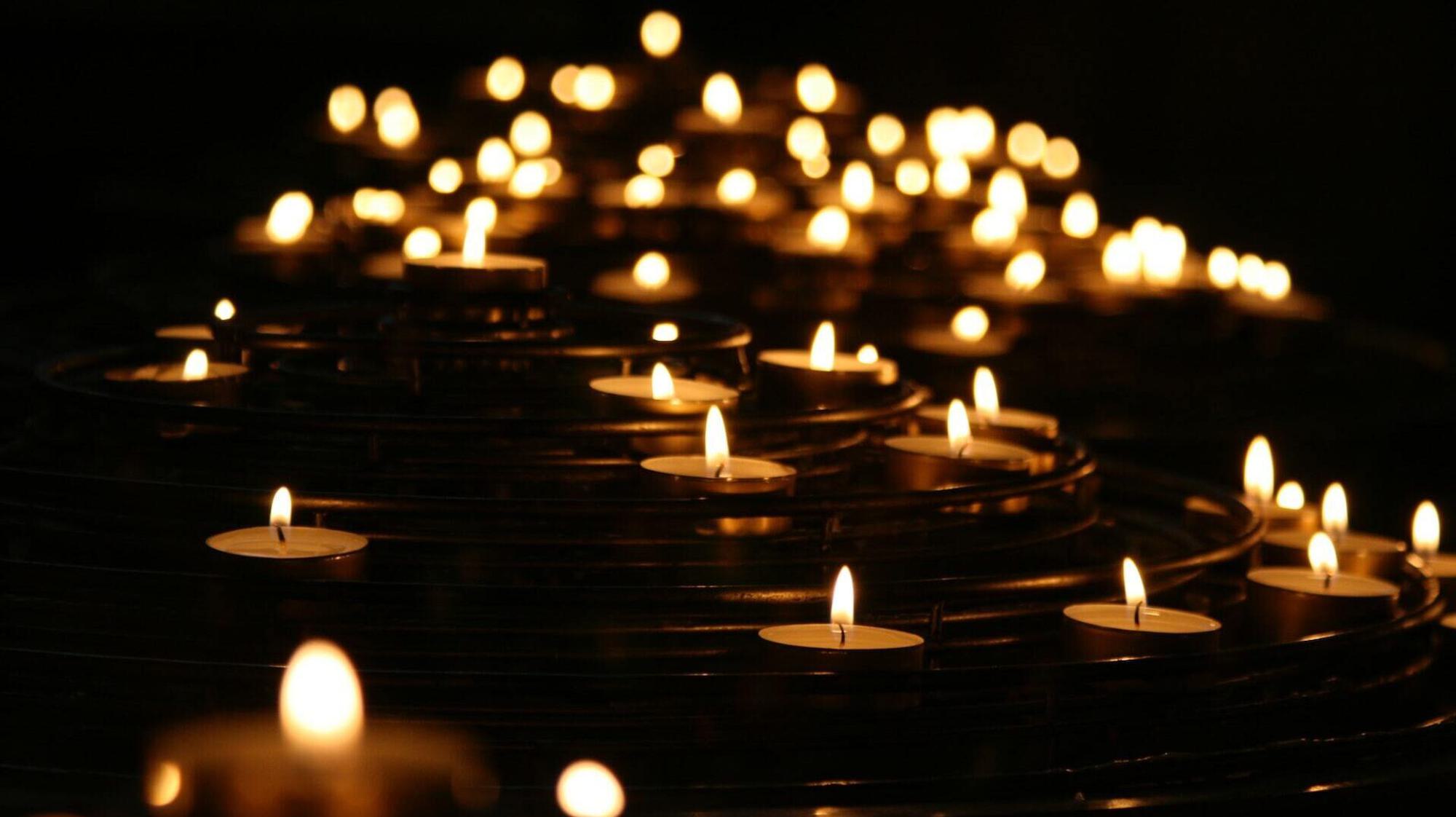
So why is this important right now?
Well, when it comes to your youth right now, there’s a possibility that some of them will be experiencing and expressing totally different reactions to what has just happened. We need to pay attention so that we can respond in a supportive way. Being an emotionally available and understanding out can be transformative in the life of a young person – particularly at significant moments like this. Here are four scenarios you may come across and how to respond.
Indifference
Let’s just mention the elephant in the room and say that number one is an attitude of utter indifference. I think we need to start with saying that you will find many young people who seem to be utterly unconcerned about the passing of the Queen. Perhaps they have never viewed the Queen or the institution of the monarchy as a figure/organisation that means anything to them – and that’s totally okay. We will (& have already) had conversations with young people who fall into this category and it’s likely that you will fing yourself in those conversations too. Our challenge is then to navigate the landscape of our youth groups with such alternating views to what’s just happened. The main challenge being to allow space for young people to discuss death without undermining or devaluing different individuals’ experiences. Feeling nothing needs to be weighed as acceptable as someone who is wrestling to process – both experiences are valid.
Curiosity
Curiosity is a really important response – both to what is happening nationally but also what is happening in the people closer to you. It’s a great reaction, worth making space for, because it shows an interest and an openness to understanding experiences beyond your own.
There will be those in your youth group who are curious about what is happening. Maybe they didn’t connect with the Queen while alive, they just sense the wave of grief that is sweeping through their communities right now and are acknowledging that something significant has taken place. Maybe they are questioning what death is all about, and that has raised questions that they are perhaps only contemplating for the first time.
Sadness
Then there will be those who feel the death of the Queen acutely and have seen the impact her death has had upon family members, deepening their sad emotions. Seeing these emotions in others often connects with our own sadness and almost allows us permission to feel it. Perhaps the Jubilee celebrations earlier this year gave them a new sense of relationship, connection, and excitement around the Queen, who she was and what she stood for.
Those who feel impacted but don’t know why
The final grouping of young people is likely to be much smaller but consists of those who have been left feeling unsettled by the event and yet are not sure why. There are various possible reasons for this, and it may be that the emotion of the last week has triggered thoughts and memories of some other traumatic experience such a close bereavement that they’ve navigated in the past. Letting people know that it’s ok to be finding this season hard to make sense of is a really supportive intervention.
So, what can I offer?
The key practical thing you can do is to provide a safe, secure, non-judgmental space and opportunity, where young people can reflect and try to explore why they are feeling the way they are.
Maybe that’s by providing a reflection space that young people can use, such as a chapel space that’s open at certain times especially for them. Or perhaps a whole group activity where you take some time to light a candle and talk/pray about the pain in the world and the loss that people are feeling right now.
If there are those who you are more concerned about, then maybe catching up with them individually or with a small friendship group could allow them a friendly and safe space to chat about how they feel over a cuppa.
Whatever you choose to do over this next week with your young people, remember to also check in with yourself and see how you are coping. If you feel like things are pressing down on you right now maybe it would be helpful for you to make some space also and catch up with someone around how you feel.

The stages of grief
It’s commonly agreed that there are five main stages of processing grief. Not everyone will experience all of these to the same degree and often not in an identical linear experience.
Often when a high-profile figure dies or a national tragedy takes place we experience a corporate stage of mourning. You can at times see the wider country and media adjust from one stage to another without even realising – it’s just the way humanity processes the loss of something or someone we hold dear.
So, stage one is denial, it’s as if your brain just can’t process the loss initially and struggles to understand. It’s often a numbness that keeps you from feeling anything or your body just feels in shock and is unsure how to respond. It’s a little like the moment you wake from a dream and question what just happened – was it real, did that actually just happen? Denial can feel a bit like this.
The next stage (although again it’s important to say that these stages are not chronological for many) is anger at the situation. Blaming yourself or battling with the unfairness of what has been lost.
The third is depression and is often characterised by a feeling of hopelessness and lack of energy. You saw this stage during the pandemic (in response to the loss of our freedoms) at various points but especially where we would find ourselves back in lockdown or towards the end of the Thursday night clapping for the NHS. The feeling of ‘nothing I do will change the situation, so I give up trying’. It’s also often characterised by a feeling of utter indifference as feeling something didn’t help so we can begin to shut down emotionally.
The next stage is bargaining – what if I’d done or said things differently, this wouldn’t have happened, or things wouldn’t be like this. It’s a stage of feeling like you’re somehow to blame. We often talk to young people about negative automatic thoughts (NATS) and these are the voices inside yourself that bombard you with a negative narrative about yourself and if not challenged can have a huge impact on your self-esteem and mental health.
Finally, we land at the final stage of grief and that is acceptance. It’s not forgetting but it is accepting that the loss has happened, and you are able to carry on with your life looking to the future. For some, the stages move through fast whilst for others it can take years – no one’s journey is quite the same.





